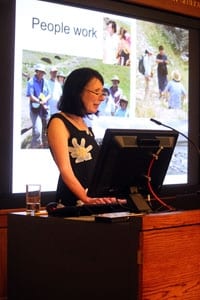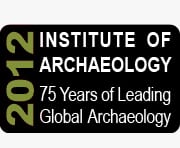How do you use your own body to understand past landscapes?
By news editor, on 15 May 2012
 Those attending Professor Sue Hamilton’s (UCL Institute of Archaeology) inaugural lecture on Tuesday 8 May at UCL were treated to a tour de force of more than two decades of archaeological fieldwork engaging with the artefacts, sites and landscapes from Bodmin Moor in Cornwall, Puglia in southern Italy to the monumental landscapes of Rapa Nui (Easter Island) in order to answer precisely that question.
Those attending Professor Sue Hamilton’s (UCL Institute of Archaeology) inaugural lecture on Tuesday 8 May at UCL were treated to a tour de force of more than two decades of archaeological fieldwork engaging with the artefacts, sites and landscapes from Bodmin Moor in Cornwall, Puglia in southern Italy to the monumental landscapes of Rapa Nui (Easter Island) in order to answer precisely that question.
Hamilton’s major influence in the field has been her unfaltering commitment to reconfiguring archaeology theory and practice as a form of ‘people work’.
At the heart of her innovative fieldwork methodology is the idea that archaeologists share something with the people whom they study – they inhabit the same landscapes and, therefore, can use their own bodies to generate multi-sensory theories about the past.
What does it feel like to walk to and from ancient sites in the landscape, what can you see and hear when inside or outside them? What can this tell us?
 Close
Close




